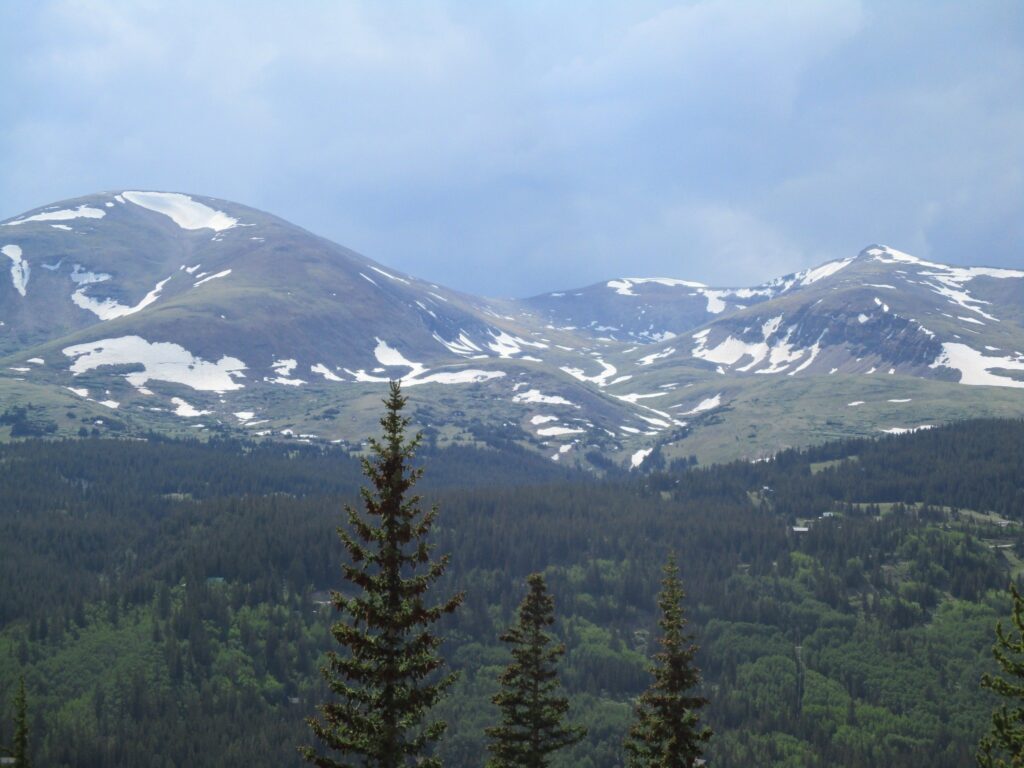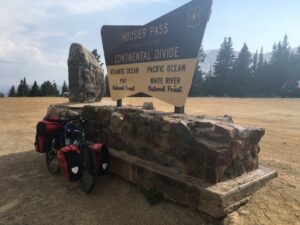
I am at milepost 2889 of my journey, in the Frisco, Colorado vicinity. This is the part of the trip for which I have longed from the start. To claim the bragging rights of having crossed a continent, one has to actually traverse the entire width of it. And so, I had to travel through all of that flat country east of the Rockies first.
It was often enjoyable. Maine was beautiful, even though it wasn’t at its summer best. And that being the only state which I had never visited, I got to complete my US State sticker collection! And the next time I ride over the White Mountains and the Green Mountains, maybe I will actually see them. This time it was so rainy and foggy, I couldn’t. I am sure they are quite amazing though.
I met the nicest people and spent some wonderful time with my parents, siblings, and old friends. Landscape-wise though, all of that farmland and the near constant smell of cow manure from Upstate New York right up to the foot of the Rocky Mountains was so much canned spinach to endure. This part of the trip is the dessert of the whole adventure. Even though my legs have felt rubbery from all of the climbing, I have been elated since leaving Pueblo, CO and seeing all that is the West: high deserts, sagebrush, magpies, mountains, valleys, canyons, tall conifers, aspen trees, blue sky and towering billows of clouds above them all.
Some people prefer to live in less hilly and open landscapes. I go crazy if there is so little variation. During this part of the trip, there has been something new around every curve and over the next climb. Things really changed drastically when I crossed over Hoosier Pass and started my descent down the Pacific side of the Great Divide. Everything got a lot greener, and cooler, with this being the wetter side of the Rockies.
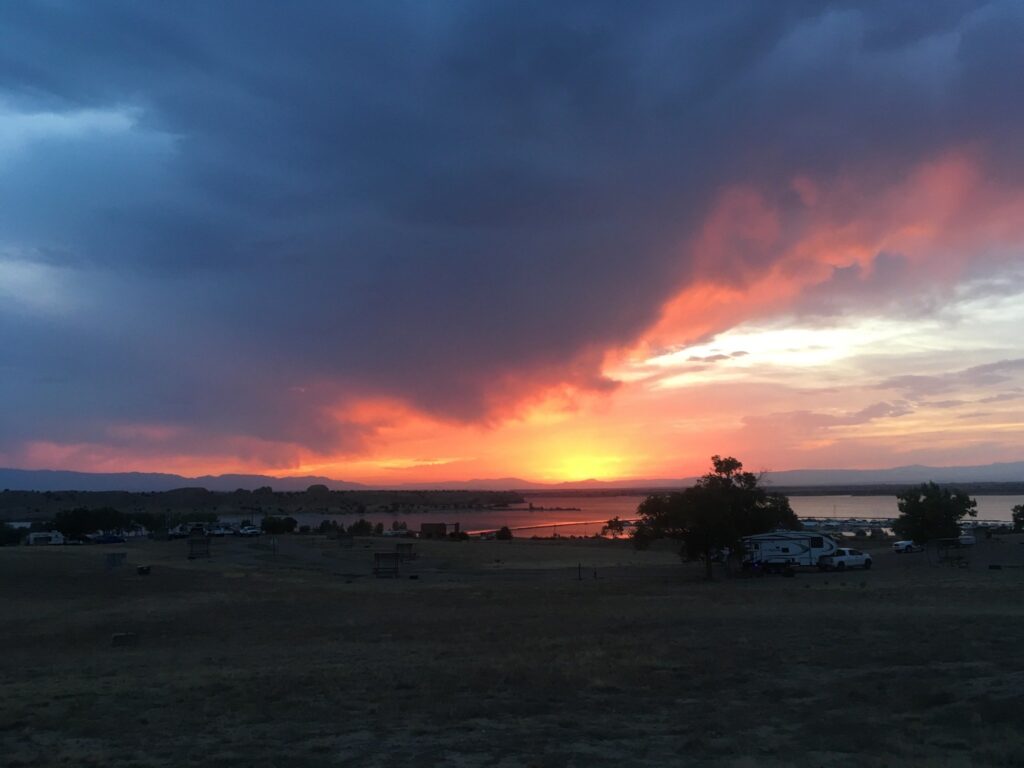
Since eastern Kansas, I have been riding a well-known bike route, established and documented as the Trans-American trail by the Adventure Cycling Association. Now that I am on it, I have had lots of company on the road. I was feeling lonely before. Except for when I was traveling the Katy Trail through Missouri, I have felt as though I was the only westbound coast-to-coast bike traveler currently crossing the United States. It didn’t seem as though there were that many eastward riders either. From Maine through Illinois, I encountered only five of them.
Now that I am on such a famous route, I am meeting all kinds of fellow cyclists. Some of them are in an annual Trans Am bike race that follows the trail all the way from Astoria, Oregon to Yorktown, Virginia. The majority of the non-competitive touring cyclists I’ve meet are from overseas. Brazil and The Netherlands have the highest number of representatives. I’ve also met people from Australia, New Zealand, the UK, and France.
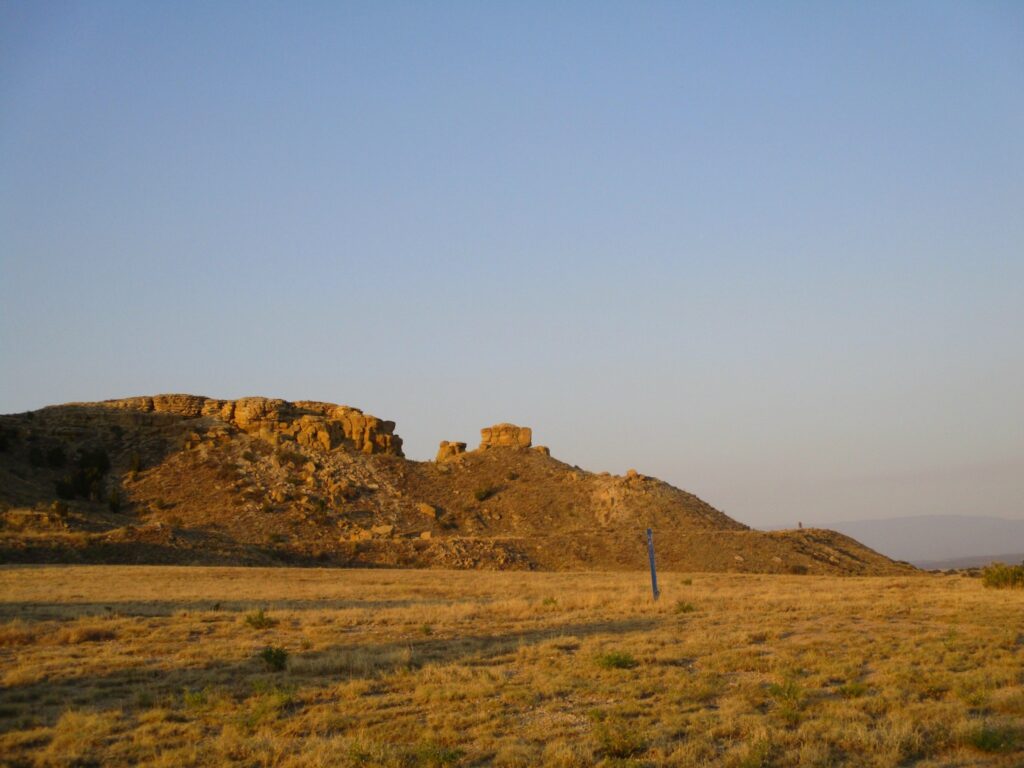
When I met the second and third US citizens traveling the Trans-Am I was in a bike shop in Pueblo, CO. They were a couple from Springfield, MO, getting ready to start out from Pueblo for Astoria, OR. When I mentioned to them that they were only Americans number 2 and 3 that I had met on the Trans-Am trail, it led to us agreeing that the scarcity of our fellow citizens was probably due to the lack of vacation time that most Americans have in comparison with other industrialized nations. The other Americans I am meeting are retired, semi-retired, or have found some means to escape the austere benefit landscape that is being a worker in the US.
It has been a lot of fun meeting all of the other cyclists, regardless of where they are from. Most people who would pedal themselves over mountains and across vast plains of a continent the size of North America, all share a certain way of looking at the world. By and large, they are people that value experience, fellowship, and community instead of overworking oneself to death in order to achieve wealth and status.
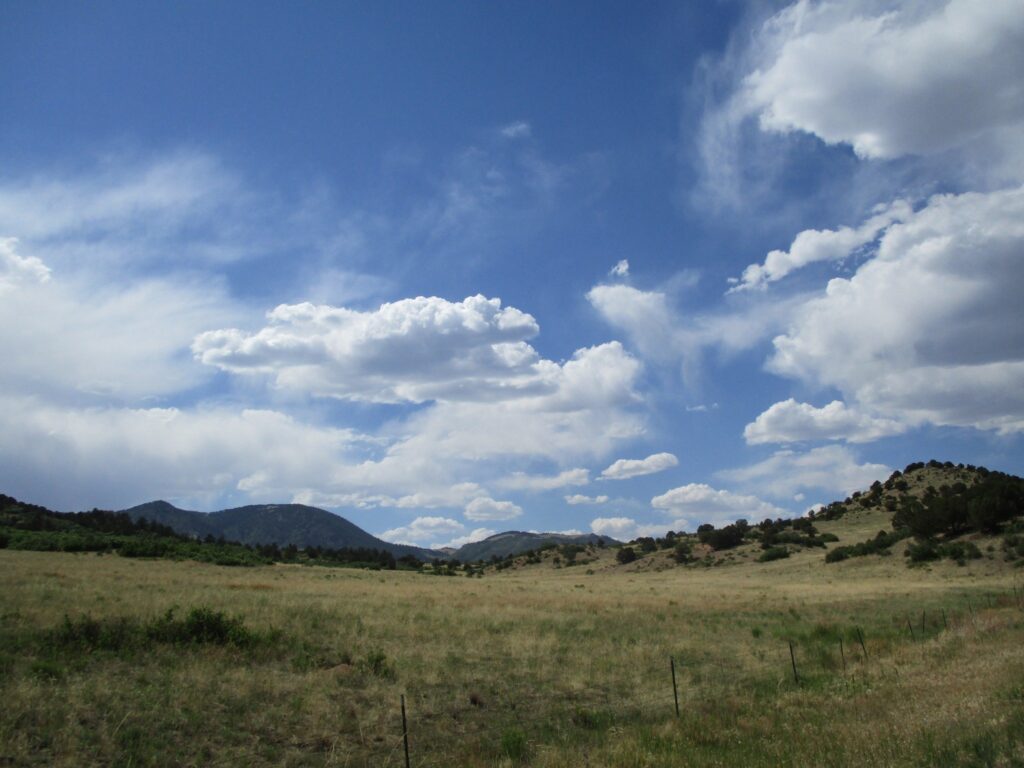
That dichotomy is generally reflective of the difference in social policy between Europe and the United States. In most European countries, people are willing to pay higher taxes, and also impose higher taxes on the very wealthy, in order to achieve a society in which, as much as possible, everyone has the economic foundation for a decent life. That foundation is built upon guaranteed access to housing, healthy food, health care, a cleaner and less-polluted environment, and an education that is, if not free, at least affordable.
The business of the United States is business. And, let’s not forget, warfare. My own sense after a lifetime of living in this country and talking with other people is that most would prefer the European model, even if they might not be so keen on paying higher taxes. The problem is that our country is owned and operated by greedy psychopaths who value only money and status. They don’t mind making a buck on the out-of-control machine of misery and death that is the military-industrial complex, or by dredging up and selling the last fossil fuel deposits necessary to send the atmosphere into a no-so-civilization-friendly state.
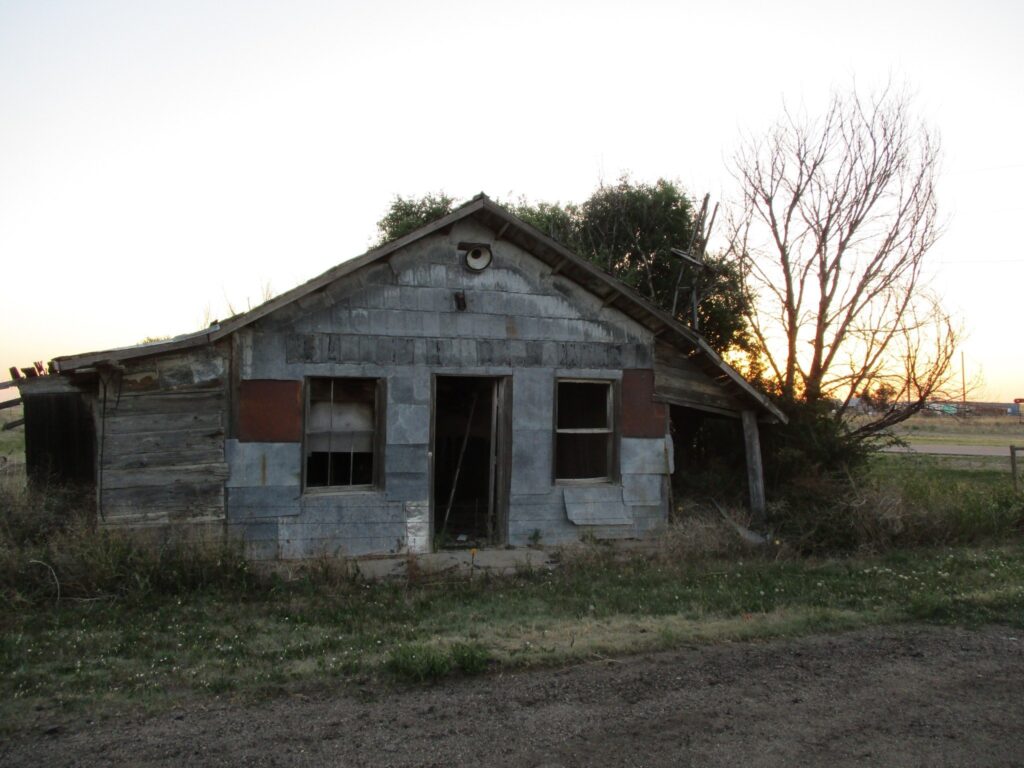
Since there is no democracy at the Federal level—that is democracy as measured by the amount that average citizens actually influence policy, which is almost zero here in the US—we may be stuck with this state of things until it really is too late. Like many people, I have high hopes for this November 2018. The hole that we have dug for ourselves over the last few decades by going hog-wild with laissez-faire economics is quite deep though.
We are definitely at a time when meaningful change from within the system is unlikely unless it can be forced by taking action outside of the system. That is one reason why on this trip, I have tried to raise funds for The Poor People’s Campaign and the Civil Liberties Defense Center. Both these organizations work to help make that happen. I hope you will consider donating to one or both.
And, if you are able to make it to Washington, DC on Saturday, June 23, consider joining the Stand Against Poverty, organized by the Poor People’s Campaign.
